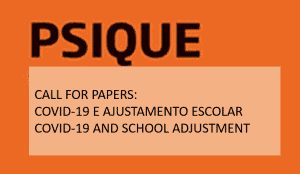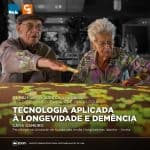CENTER FOR RESEARCH IN PSYCHOLOGY
CIP
Chapter I
Nature, Objectives, Headquarters and Duration
Article 1
(Nature and Denomination)
- The center of research in psychology, hereinafter referred to as CIP, constitutes an organic unit of the Universidade Autónoma de Lisboa (UAL) which, in turn, is managed by the Cooperativa de Ensino Universitário (CEU), and with the international designation of CIP (Psychology Research Centre).
- The CIP carries out its activity in the field of scientific research and technological development, in the field of Psychology.
Article 2
(Goals)
- The CIP aims to:
a) The production and dissemination of R&D projects;
b) The articulation and promotion of synergies between Research Centers and Research Lines already existing at UAL, privileging multidisciplinarity;
c) Encouraging researchers to develop fundamental and applied scientific research projects in the context of psychosocial vulnerability and unstable contexts;
d) The promotion of advanced training of human resources in R&D, through the reception of post-doctoral fellows, masters fellows and young researchers;
e) The holding of seminars and conferences promoting the updating of knowledge in the community;
f) Validation of Instruments;
g) The development of observation and analysis techniques for therapeutic situations
h) Integration into international research networks, encouraging the participation of researchers in R&D projects and international conferences;
i) Promoting the publication of scientific articles;
j) The systematic collection of documentation in the area of Social Sciences and Humanities.
2. In order to achieve these objectives, the CIP may, in particular, collaborate, in the manner to be defined in a protocol prepared for the purpose, with other research and development centers evaluated and recognized in the legal terms, as well as its members participating in these centers of investigation. The terms and conditions of this collaboration must be included in a specific document, signed by all parties involved.
Article 3
(Headquarters)
CIP is headquartered at Rua de Santa Marta, number 56, parish of Santo António, municipality of Lisbon.
Article 4
(Duration)
The CIP lasts indefinitely.
Chapter II
Resources
Article 5
(Human Resources)
The CIP has the necessary human resources to ensure its regular operation, which will be allocated to it by the CEU
Article 6
(Material resources)
1. The CIP has the facilities, infrastructure, equipment and budgetary allocation to ensure its regular operation that are assigned to it by the CEU
2. The following constitute CIP's own revenues:
a) Those arising from the involvement of its members in teaching, research and development activities;
b) Those arising from the provision of services and the sale of publications;
c) Subsidies, subsidies, co-participations, donations, inheritances and legacies;
d) Any others that you can legally obtain.
Chapter III
Members
Article 7
(Categories)
1. The following categories of CIP members are the existing ones:
a) Integrated PhD researchers;
b) Integrated non-doctoral researchers;
c) Collaborating researchers.
2. Doctoral researchers integrated into the CIP are researchers with a doctorate (or equivalent) who, exercising activity in the scientific areas of the CIP and, expressing a desire to adhere to it, are admitted under the terms of article 9 of these Statutes.
Non-Doctoral Integrated CIP Researchers are those researchers who, exercising activity in the scientific areas of the CIP and, expressing a desire to adhere to it, are admitted under the terms of article 9 of these Statutes.
3. CIP Collaborating Investigators are researchers who carry out their main research activity outside the CIP, despite collaborating in the CIP's research activity.
Article 8
(Rights and Duties)
1. CIP members are entitled to:
a) Take part in CIP activities;
b) Use CIP resources.
2. CIP members have the duty of:
a) Contributing to the achievement of the objectives set out in article 2 of these Statutes;
b) Respecting the CIP Statutes and, in particular, comply with the decisions of the CIP management bodies.
Article 9
(Admission and Exclusion of Members)
- Admission and exclusion of CIP members are the responsibility of the Scientific Council.
- The admission and exclusion of an Integrated Investigator from the CIP must be done by secret vote of the members of the Scientific Council, and the votes must be approved by majority.
- All proposals for admission or exclusion of CIP members must be submitted in writing to the Scientific Council, through the Director, and must be properly justified.
- The CIP researcher admission proposal must be accompanied by the Curriculum Vitae, in the case of an Integrated Investigator.
- The proposal to exclude a researcher from the CIP must be presented either by the Director or by the person in charge of the Research Project in which the researcher is integrated, or by the majority of the members of the Scientific Council.
- Those responsible for Research Projects must inform the Director of the departure of any member from their study/research project.
.
Chapter IV
Organization
Article 10
(Management Entities)
The CIP has the following Management Bodies:
the direction;
b) Scientific Council;
c) External Monitoring Unit;
e) Ethics Committee;
d) New Projects Evaluation Committee.
Section I
Article 11
(Composition and Skills)
1. The Board is made up of:
a) Director;
b) Deputy directors, a maximum of two.
2. The Board is made up exclusively of researchers integrated into the CIP.
3. The Director is appointed by the CEU Board of Directors, from among the members of the Scientific Council that make up the teaching/researchers of Grupo CEU
4. The constitution of the Board is the responsibility of the Director, and must be ratified by the Board of Directors of CEU
5. The Board is responsible for the management and administration of the IPC, namely:
a) Represent the CIP before all bodies of UAL, CEU and external entities;
b) Promote the achievement of the objectives of the CIP;
c) Coordinate the activities of the CIP;
d) Chair the Scientific Council of the CIP;
e) Submit the CIP's internal regulations to the Scientific Council for approval;
f) Propose to the Scientific Council the budget and annual plan of activities and ensure the implementation of the approved plans;
g) Present to the Scientific Council, for deliberation, the composition of the Monitoring Unit;
h) Obtain and manage the funds necessary for the functioning of the CIP;
i) Prepare the Annual Report and Accounts for consideration by the Scientific Council;
j) Decide on amendments to the CIP Statutes.
Section II
Scientific Council
Article 12
(Composition and Skills)
1. The Scientific Council is made up of integrated doctoral researchers and is chaired by the Director.
2. The Scientific Council is responsible for:
a) Define the policy for scientific research and advanced training of human resources;
b) Approve the application of CIP researchers to any national or international funding programmes;
c) Approve its internal regulations;
d) Issue an opinion on the budget, plan and annual report of activities, which must be submitted for approval by the CEU Board of Directors;
e) Issue an opinion on the composition of the Monitoring Unit proposed by the Management;
f) Give an opinion on the establishment of agreements, agreements and contracts for the provision of services with other institutions, for approval by the Board of Directors of CEU;
g) Propose amendments to the Statutes;
h) Approve the admission and exclusion of researchers;
i) Invite the members of the New Projects Evaluation Committee.
3. The Scientific Council is convened by its Coordinator, on his/her initiative, or at the request of at least a quarter of its members.
Section III
External Monitoring Unit
Article 13
(Composition and Skills)
1.The External Monitoring Unit, with a three-year term, is made up of a minimum of three and a maximum of five experts from outside the CIP, with recognized competence in the respective area, including foreign researchers.
2. The External Monitoring Unit is responsible for:
a) Analyse, once a year, the functioning of the CIP;
b) Issuing the opinions it deems appropriate, in particular on the annual activity plan and report.
Section IV
Ethics Committee
Article 14
(Composition and Skills)
1.The Ethics Committee, with a term of three years, is formed by a minimum of five experts, with recognized competence in the respective area, and must include specialists outside the CIP.
2. The Ethics Committee is responsible for:
a) Issuing the opinions it deems appropriate on the research projects proposed and/or carried out within the scope of the CIP;
b) Issuing opinions on matters of Ethics that arise in the functioning of the CIP;
c) Opinions, which must be justified, are binding when approved by a qualified two-thirds majority.
Section V
New Projects Evaluation Committee
Article 15
(Composition and Skills)
1.The New Projects Evaluation Committee is formed by a minimum of three researchers outside the CIP, with recognized competence in the respective area.
2. It is incumbent upon the New Projects Evaluation Committee to:
a) Issuing (in a specific form) the opinions it deems appropriate on the proposals for new research projects within the scope of the CIP;
b) The opinions, which must be justified, determine the acceptance of the research project in the CIP.
Common Provisions
Article 16
(Meetings, Deliberations and Mandates)
1. The deliberations of the Scientific Council and the External Monitoring Unit are only valid as long as the majority of their members are present in full capacity.
2. Decisions are taken by the majority vote of the members present.
3. The term of office of the Board is three years and only ends with the entry into office of the new holders.
Chapter VI
Final dispositions
Article 17
(Implementation)
These Statutes enter into force on January 6, 2022.



